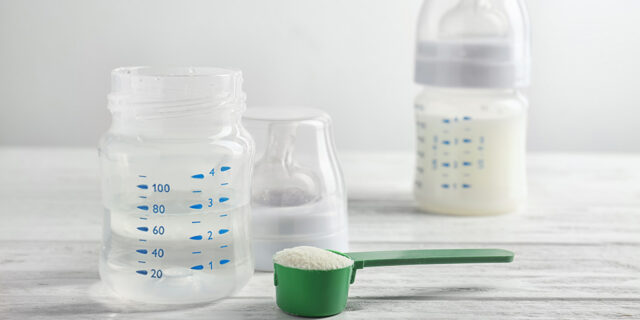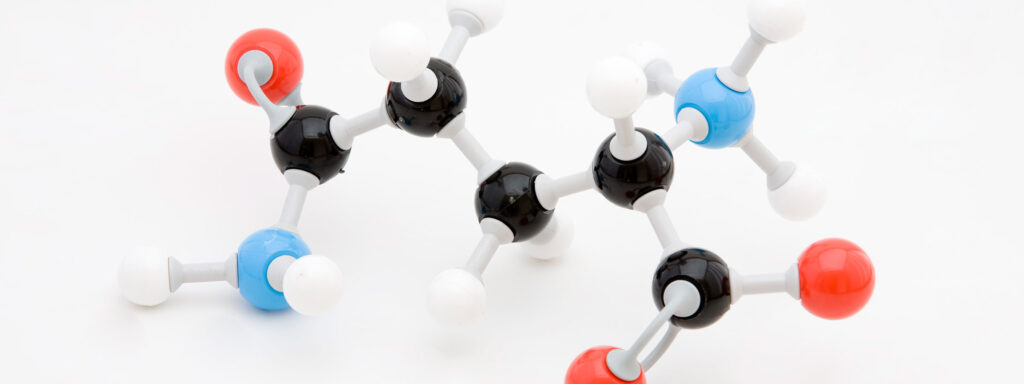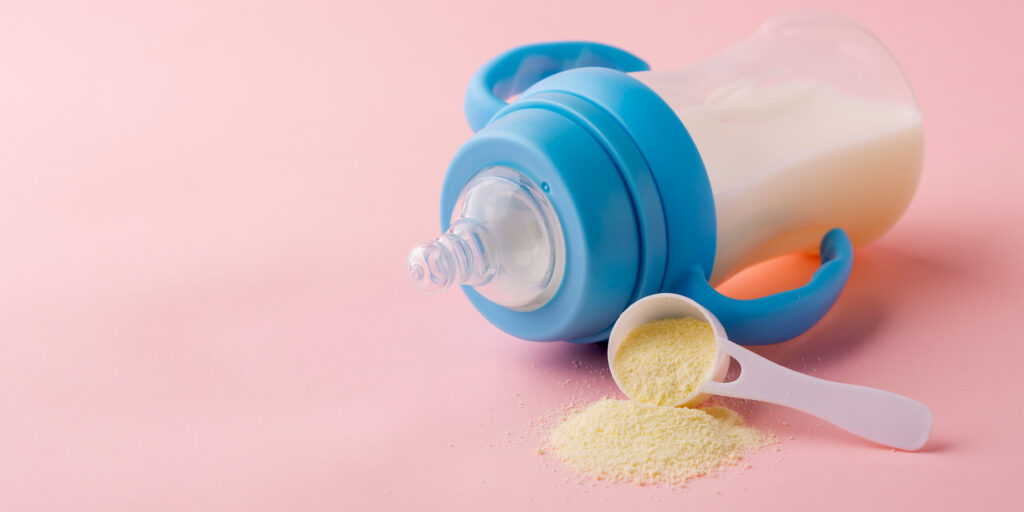The production of infant formulas and baby food is subject to incredibly strict standards of safety and hygiene. The most important aspect in the production of baby milks is to ensure the correct dosage of ingredients. Both a lack and an excess of certain ingredients can be detrimental to an infant’s well-being.
Various ingredients such as probiotics and prebiotics, minerals, and microelements such as zinc, copper, selenium, or chromium should be ideally distributed in the powdered formula before it’s packaged. The baby food must be dust-free, rapidly dispersible, well soluble, and homogeneous.
Let’s talk about other high-quality standards for infant foods, what should be there and which components are undesirable.
What should be included in infant formula?

Women’s breast milk has a unique composition that is ideal for a growing baby’s body. Cow’s milk used to make infant milks is quite different from human’s. For all manufacturers of baby formula worldwide, making their products as similar to breastmilk as possible is one of the topmost priorities. This is why the standards of infant nutrition require the following components to be present in baby milks:
Fats. Omega-3 and Omega-6 fatty acids (present in mother’s milk) and vegetable oils (normally added to make the formula more nutritious and filling). The recommended amount is 3 – 3.8 g, with vegetable oils accounting for most of it. Fats help digest important nutrients and support the development of body systems. They also supply calories. The caloric value of baby formula should be at least 64-72 kcal.
Proteins. The recommended protein content is around 1.39 – 1.7 g/100 ml. In addition, it’s very important that the casein proteins in infant milks are replaced by whey proteins, as the latter are much easier to digest. Whey proteins are used as a protein base for any dairy formula. It has the most balanced composition possible, so it’s broken down quickly enough and doesn’t contribute to gaining extra weight.
Vitamins and minerals. The amount of vitamins and minerals in the baby formula should be 15-20% more than in breast milk because synthetic substances are much less absorbable than natural ones. These, in particular, include:
- L-carnitine, a vitamin-like substance that activates fat and protein metabolism, stimulates cell regeneration, and increases appetite. Carnitine is also one of the components of women’s breast milk.
- Choline, a vitamin-like substance that protects body cells from damage and destruction, lowers blood cholesterol levels, improves metabolism, and has a calming effect.
- Minerals such as calcium, phosphorus, potassium, sodium, magnesium, selenium, zinc, iodine, and other components necessary for a baby’s growth and development.
- Vitamins A, B1, B6, K, E, D, C, PP, as well as pantothenic acid, pyridoxine, biotin, etc.
- Inositol, or vitamin B8, is essential for children’s liver, kidney, adrenal and nervous system function, maintaining normal blood cholesterol levels and strengthening the walls of blood vessels.
Amino acids. Important amino acids are absent in cow’s milk, so their addition is mandatory:

- L-Tryptophan is directly involved in protein biosynthesis.
- L-Tyrosine, another very important amino acid. Its functions are normalization of CNS function and building of cell membranes.
- Taurine, An amino acid essential for proper CNS development, brain development and eye health. In the first days of life, this substance is simply indispensable for a baby’s body, as it only starts synthesizing after 1.5 months since birth.
Demineralized whey. Demineralization is the main processing operation for whey, which reduces its acidity and mineral content. Unlike skimmed milk powder, which is also used in the manufacture of infant formula, this product is considered the closest to breast milk.
Skimmed milk. An essential ingredient of any baby formula that contains less protein than regular cow’s milk, making it easily digestible.
Lactose. Natural sugar that’s found exclusively in milk. It’s an ideal source of energy, normalizes calcium metabolism, supports normal intestinal microflora and prevents cardiovascular diseases. Lactose is harmful only to children who have been found to be intolerant to it.
Prebiotics. The best food for the beneficial intestinal microflora, which stimulates its vitality and growth. The deficiency of prebiotics in the body can cause diseases such as dysbacteriosis, diathesis, atopic dermatitis, and reduced immunity.
Nucleotides. Complex substances that play a very important role in many biological processes. In particular, they provide the basis for the construction of DNA and RNA strands and are responsible for protein synthesis and take part in carbohydrate metabolism.
Ingredients that are allowed in infant formula

Vegetable oils (rapeseed, coconut oil, palm oil, sunflower oil) are a major source of fats essential for the development of a baby’s brain. This is a rather controversial component, as consumption of some oils (palm oil, in particular) isn’t recommended not only for children but also for adults due to high cholesterol and carcinogen content.
Maltodextrin. A food additive derived from corn or potato starch. It serves as the main substitute for sugar and also acts as a thickener, leavening agent, emulsifier, and flavor enhancer. Unlike malt or molasses maltodextrin doesn’t cause allergies, detoxifies the body and has a beneficial effect on the intestines. However, it’s contraindicated for babies with gluten intolerance.
Starch is also a controversial ingredient, as many pediatricians do not recommend it for children under 6 months of age.
Soy lecithin. One of the by-products of soybean oil and flour production. On its own, it’s not harmful to the body. In fact, it supports liver health and participates in cell building.
Ingredients not allowed in baby formula

- Glucose syrup (or any added sweeteners). They make baby food more filling but also contain lots of ‘empty’ calories.
- GMO-based products.
- Carrageenan. This is a natural ingredient extracted from seaweed that makes the formula thicker and smoother. There are some concerns about it causing numerous digestive issues.
Finally, it is important to note that even the most expensive and high-quality formula can’t be a full-fledged replacement for mother’s milk. This is why you should make every effort to properly establish breastfeeding. In case that’s impossible, make sure you talk to a trained pediatrician before introducing formula into your little one’s diet. This will help avoid many problems and make sure your baby is as healthy and happy as possible.







